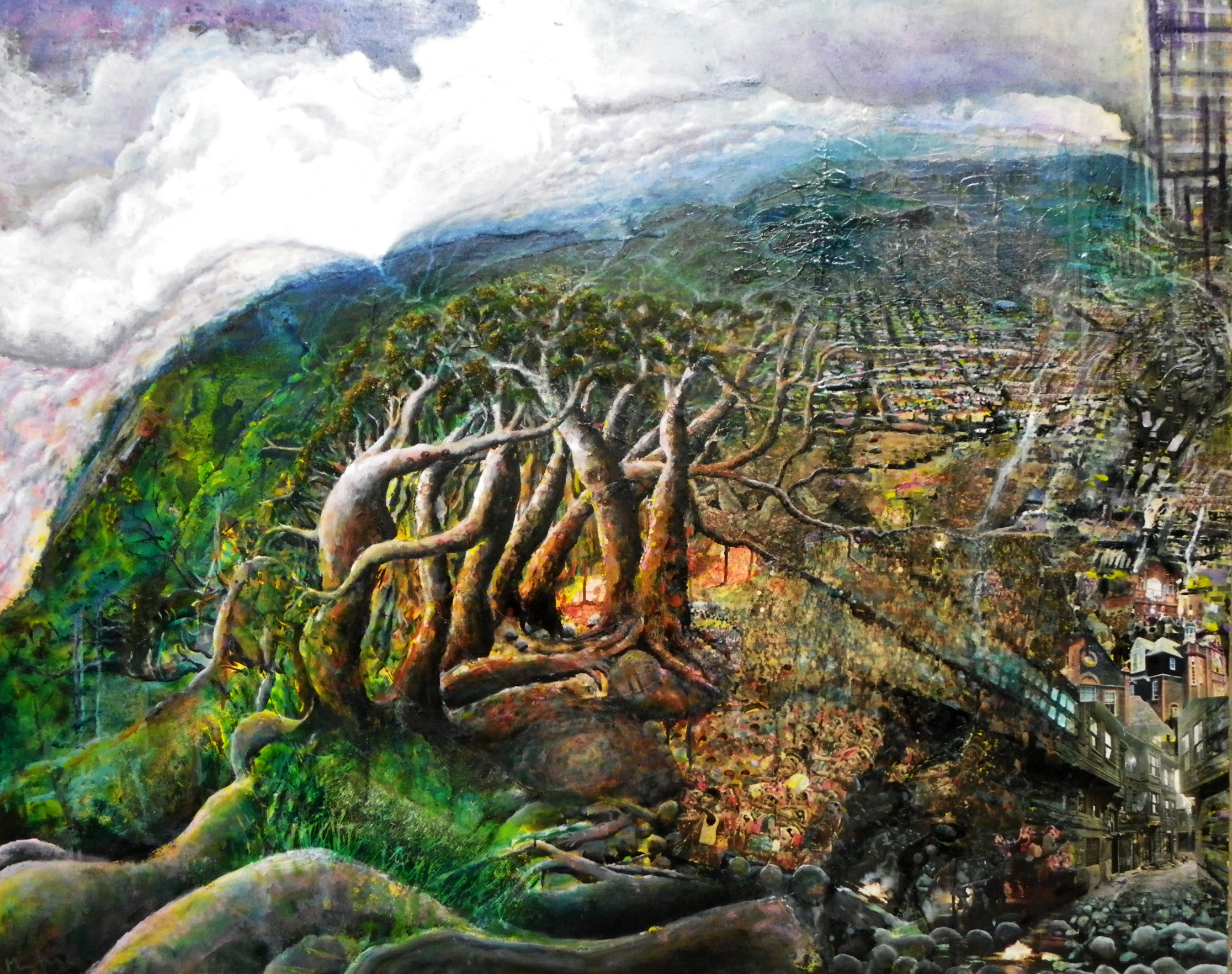Environmental and Sustainable Peace, Social Justice and Creative Activism: Celebrating 40 Years of Peace Studies at UNE
This year Peace Studies celebrates forty years of outstanding tertiary education for peace, making it one of the oldest Peace Studies centres in the world. To commemorate this historic occasion, we are holding an international conference at UNE from 1-5 December 2022. To view the conference schedule, click here.
The conference will feature five inter-connected strands which aim to showcase solutions-based approaches to minimising all forms of violence - ecological, structural, cultural and direct - and creating positive peace, sustainability, and just, resilient societies. These strands are:
- Sustainability of environments, such as responding to global warming and biodiversity loss, and reducing war and militarism, which are both extremely ecologically violent.
- Positive peace through the creation of social justice, particularly for indigenous people, youth, women, and other marginalised groups. This strand includes reconciliation, treaties, restorative justice, peace history and memorialisation, and a just transition for workers towards environmental sustainability.
- Sustainable peace-building. This strand calls for practical methods of creating nuclear disarmament and long-lasting peace in conflictual areas.
- Nonviolent activism – examines the most effective tactics for environmentalism and peacebuilding, such as direct action, industrial action and divestment.
- The arts, humour and creativity used to enhance nonviolent activism and promote environmental peace, sustainable peacebuilding and social justice.
 The conference will bring together a diverse range of environmentalists, Aboriginal Elders, peace advocates, youth, artists, activists, feminists, unionists, land carers, academics, LGBTQI+ people, scientists and politicians, and have a vibrant cultural and celebratory element. A focus will be on finding common ground, collaboratively developing effective solutions, showcasing achievements, building solidarity and enabling creative, sustainable networks and movements. The organisational structure will be devolved and involve participatory democracy, where groups and individuals are encouraged to decide how they would like to be involved and what they would like to bring to the event. A range of formats is possible, including traditional 15-20 minute papers, shorter presentations1, panels, workshops, field trips, and open space sessions2. We aim for a gender-balanced confest which is affordable and accessible to both academic and general audiences, with minimal waste and emissions.
The conference will bring together a diverse range of environmentalists, Aboriginal Elders, peace advocates, youth, artists, activists, feminists, unionists, land carers, academics, LGBTQI+ people, scientists and politicians, and have a vibrant cultural and celebratory element. A focus will be on finding common ground, collaboratively developing effective solutions, showcasing achievements, building solidarity and enabling creative, sustainable networks and movements. The organisational structure will be devolved and involve participatory democracy, where groups and individuals are encouraged to decide how they would like to be involved and what they would like to bring to the event. A range of formats is possible, including traditional 15-20 minute papers, shorter presentations1, panels, workshops, field trips, and open space sessions2. We aim for a gender-balanced confest which is affordable and accessible to both academic and general audiences, with minimal waste and emissions.
Speakers include:
Gem Romuld, Australian Director of the Nobel Prize-winning International Campaign to Abolish Nuclear Weapons (ICAN)
Dr Sue Wareham OAM, President, Medical Association for Prevention of War (Australia)
Uncle Steve Widders, Anaiwan and Kamillaroi Elder, Chair of the Newara Aboriginal Corporation
Aunty Rose Lovelock, Director, Aboriginal Cultural Centre and Keeping Place
Richard Outram, Secretary of Mayors for Peace (UK/Ireland Chapter)
Senator David Shoebridge, Parliament of Australia
Organisations represented include the Australian Network of Museums for Peace, Anaiwan Language Revival Program, United Nations Association of Australia, School Strikes for Climate Action, Women’s International League for Peace and Freedom, Friends of the Earth, Anglican Pacifist Fellowship, Australian Association for Environmental Education, Armidale Urban Rivercare Group, and Institute for Economics and Peace.
Cultural elements include performances of Dr Lorina Barker’s immersive, interactive production of ‘Trucked Off’, Dr Alana Blackburn’s multi-media ‘Regrowth’, a reading of Dr Richard Jordan’s award-winning play ‘The Tiniest Thing’, visual art (including by renowned Yuin Elder Uncle Lloyd Hornsby), and documentaries screenings including ‘Atomic Confessions’.
Accommodation, travel, local attractions
See the Visit Armidale website for information about accommodation in Armidale, how to get here, and our spectacular World Heritage gorge country, waterfalls, adventures, galleries, museums, heritage tours, sound trails, restaurants, winery, craft beers and much more. Camping and caravanning information can be found through the NSW government parks and recreation website.
For budget accommodation at Mary White College, register here and book using the group code "PEACE".
History of Peace Studies at UNE
The growth and development of Peace Studies at UNE occurred in three stages: a formative stage, 1970s-1980s; a growth stage, 1990 – 2007; and its current stage, from 2008 onward. A full report is available below for download prepared by DB Subedi and Marty Branagan and is based on interviews conducted with people who were and are involved in teaching and research in Peace Studies at UNE.
1 These presentations typically involve twenty slides of twenty seconds each.
2Open space is a form of self-organising facilitation whereby people come together around a loose theme or topic and specify what they want to discuss with each other. Participants’ interests then dictate the organisation of people into sessions.

